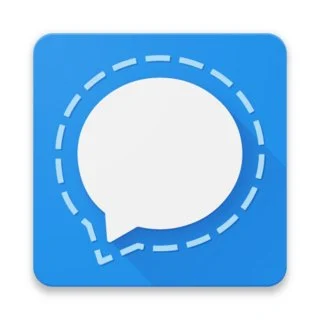In an age where digital communication is paramount, choosing the right platform for video calls and messaging is crucial. Two popular contenders, FaceTime and Signal, each offer unique strengths and cater to different user preferences. This in-depth comparison delves into the key aspects of both platforms to help you make an informed decision.

Privacy and Security: Which Platform Protects You Better?
Signal:
- End-to-End Encryption: Signal is renowned for its robust end-to-end encryption, ensuring that only you and the recipient can read your messages. This level of security has earned Signal the trust of privacy advocates worldwide.
- Open-Source: Signal’s code is open-source, meaning it’s publicly available for scrutiny. This transparency allows security experts to identify and address potential vulnerabilities, further enhancing Signal’s security.
FaceTime:
- End-to-End Encryption: FaceTime also employs end-to-end encryption, safeguarding your calls from unauthorized access. Apple’s commitment to privacy is evident in its encryption practices.
- Closed-Source: Unlike Signal, FaceTime’s code is closed-source. While Apple maintains strict security standards, the lack of public scrutiny may raise concerns for some users.
Verdict: Both FaceTime and Signal offer strong end-to-end encryption, ensuring your conversations remain private. Signal’s open-source nature gives it a slight edge in transparency, but FaceTime’s encryption is equally robust.
Features and Functionality: What Can Each Platform Do?
FaceTime:
- Seamless Integration: FaceTime is deeply integrated into Apple’s ecosystem, making it incredibly convenient for users of Apple devices. You can initiate calls directly from your contacts, messages, or even Siri.
- Group Calls: FaceTime allows you to host group video calls with up to 32 participants. This is perfect for family gatherings, virtual meetings, or casual chats with friends.
- SharePlay: This unique feature lets you share music, movies, TV shows, and even your screen with others during a FaceTime call. It’s a fun way to connect with loved ones over shared experiences.
Signal:
- Cross-Platform: Signal is available on iOS, Android, Windows, Mac, and Linux, making it accessible to a wider audience. This cross-platform compatibility is a major advantage for users who don’t exclusively use Apple devices.
- Disappearing Messages: Signal offers disappearing messages, allowing you to set a timer for messages to automatically delete after a certain period. This feature adds an extra layer of privacy to your conversations.
- Note to Self: Signal includes a “Note to Self” feature, which lets you send messages to yourself. This can be handy for jotting down quick notes, reminders, or even saving links.
Verdict: Both FaceTime and Signal offer a range of useful features. FaceTime’s seamless integration with Apple devices and SharePlay make it a compelling choice for Apple users. However, Signal’s cross-platform compatibility and privacy-focused features, like disappearing messages, give it an edge for users seeking maximum privacy and flexibility.
User Experience: Which Platform is Easier to Use?
FaceTime:
- Intuitive Interface: FaceTime boasts a clean, intuitive interface that is easy to navigate. Even those new to video calling will find it simple to start and join calls.
- High-Quality Video and Audio: FaceTime consistently delivers high-quality video and audio, ensuring a smooth and enjoyable communication experience.
Signal:
- Similar Interface: Signal’s interface is similar to FaceTime, making it easy to transition between the two platforms.
- Consistent Performance: Signal also offers excellent video and audio quality, although it may not be as consistently smooth as FaceTime, especially on older devices.
Verdict: Both FaceTime and Signal provide a user-friendly experience with high-quality video and audio. FaceTime’s slightly more polished interface and consistent performance give it a slight advantage in this category.
Choosing the Right Platform for You
Ultimately, the best platform for you depends on your individual needs and priorities.
- If you prioritize seamless integration with your Apple devices and frequently use features like SharePlay, FaceTime is a strong choice.
- If cross-platform compatibility, maximum privacy, and features like disappearing messages are important to you, Signal is the way to go.
Both FaceTime vs Signal are excellent options, each with its own strengths. Consider your specific requirements and preferences to make the most informed decision.